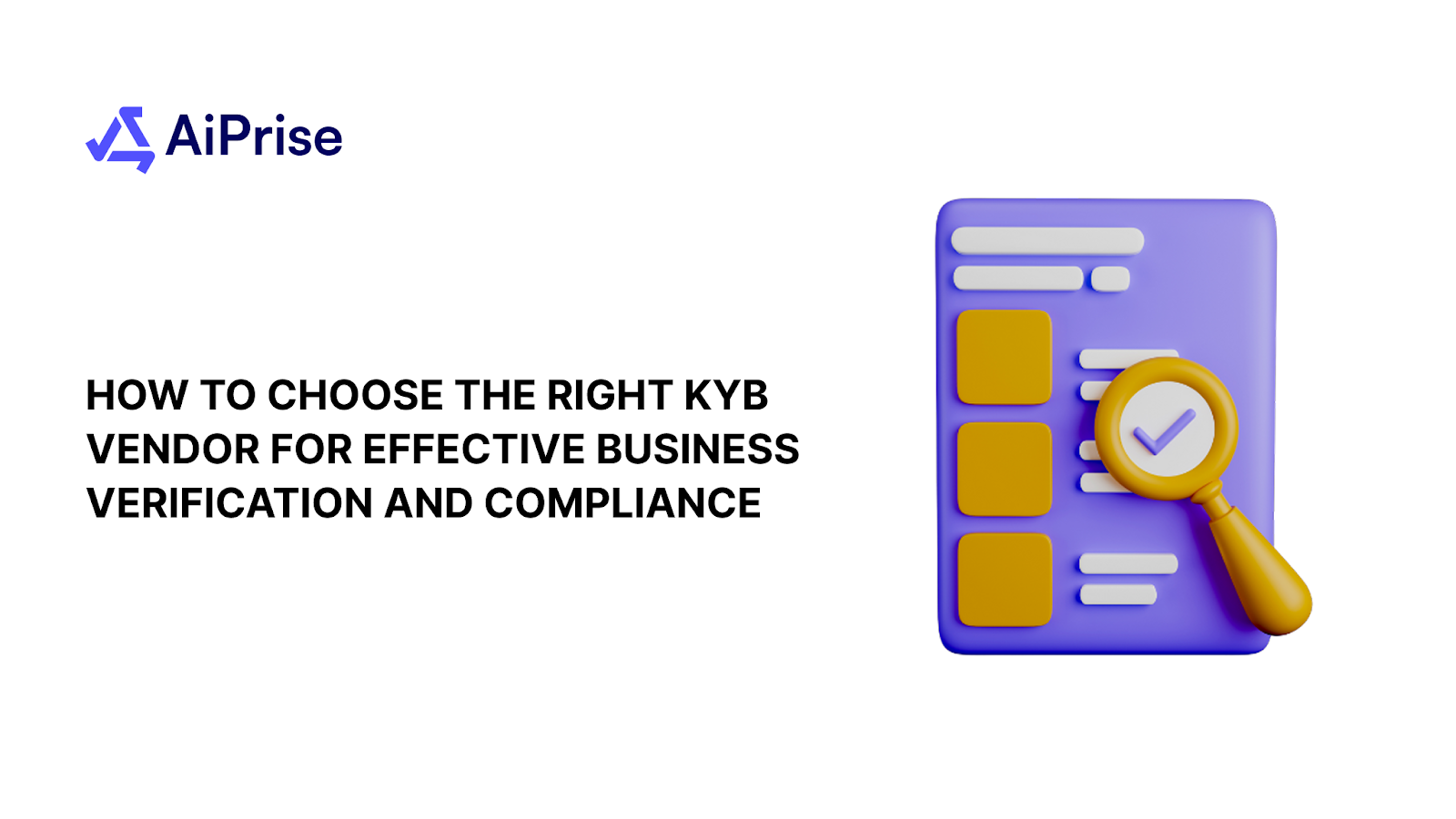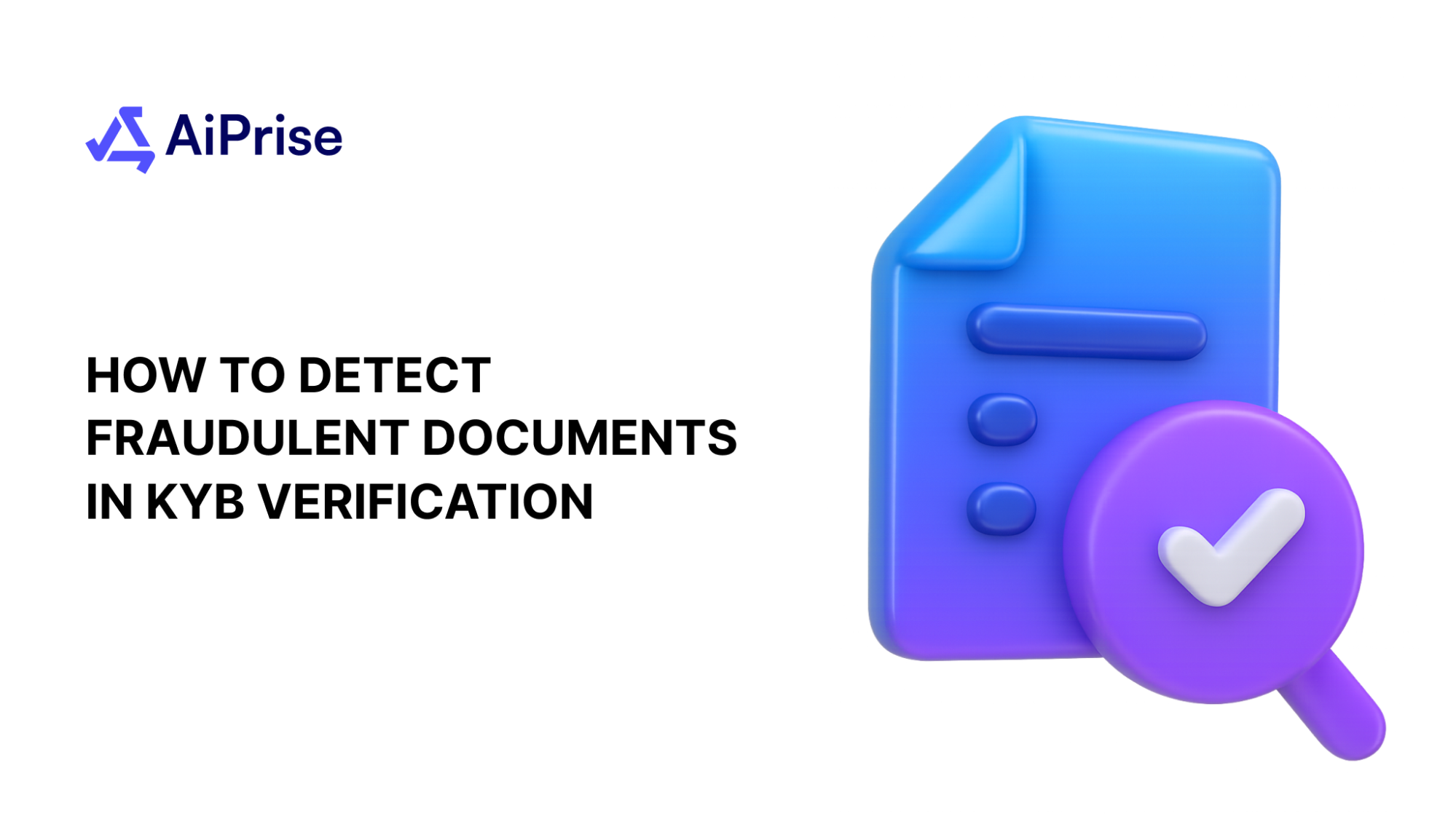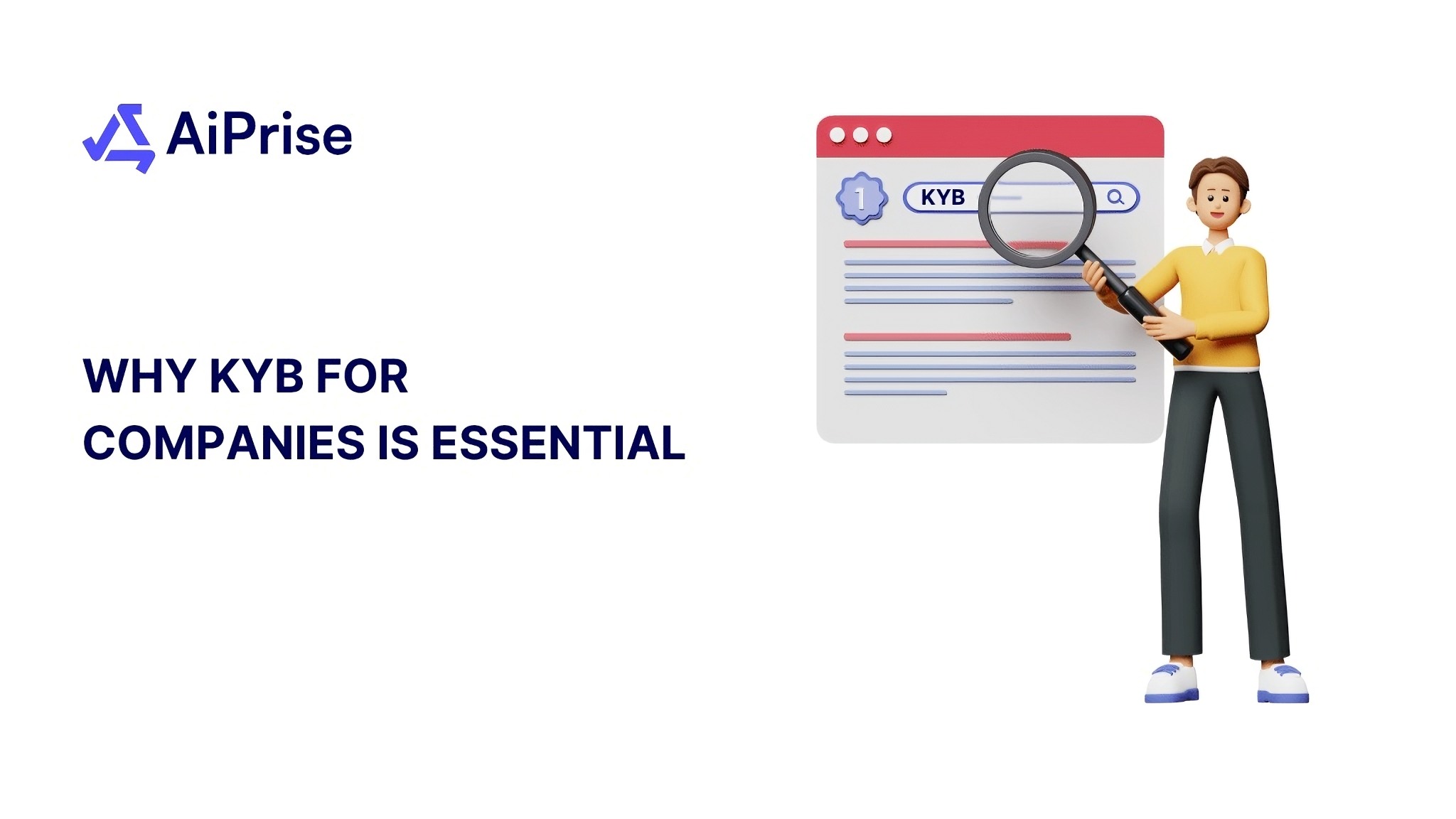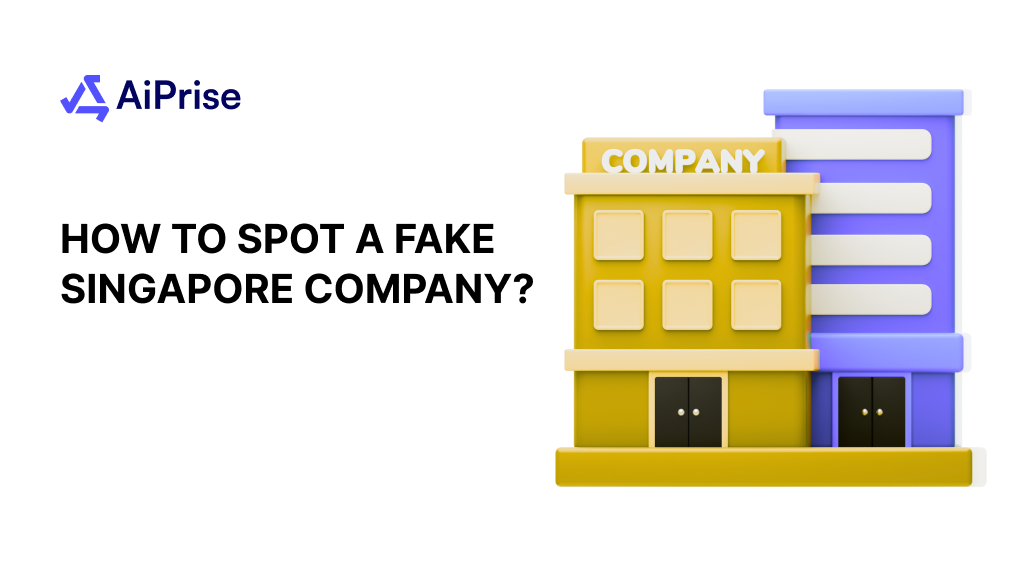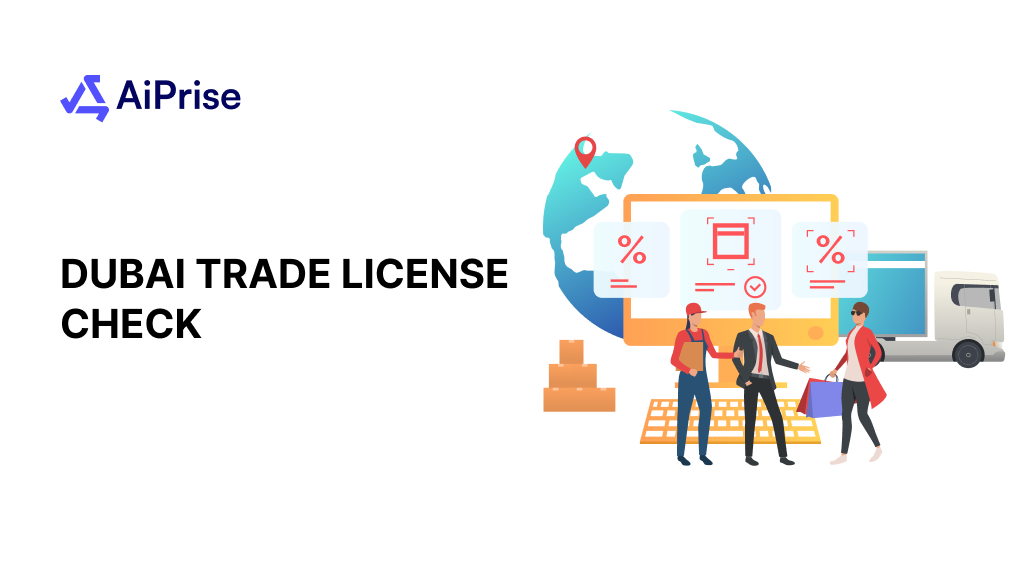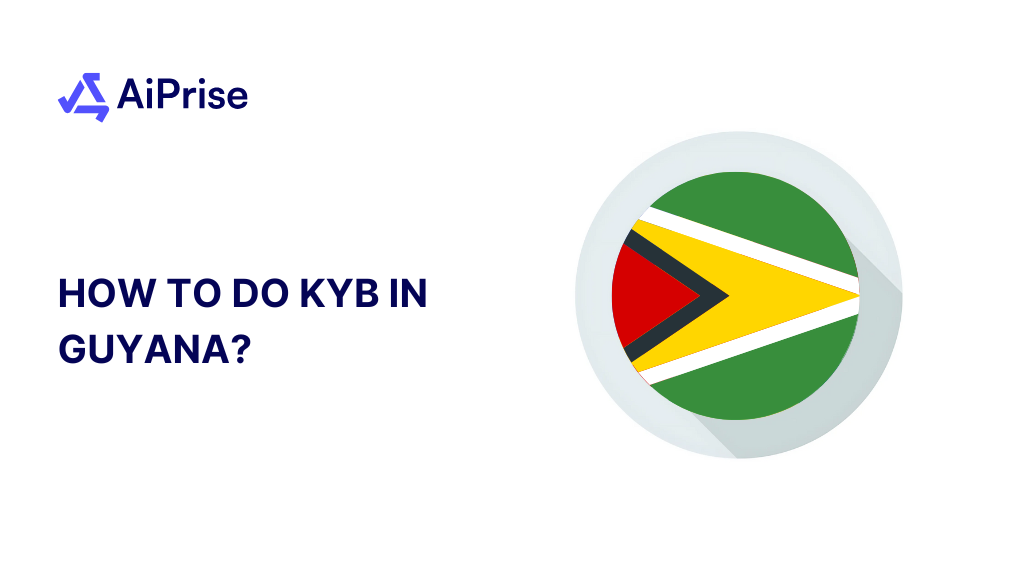AiPrise
5 min read
April 17, 2025
How to do Business Verification in Tuvalu?

Key Takeaways










As businesses expand globally, ensuring compliance with local regulations becomes increasingly complex. Though small, Tuvalu presents unique challenges when it comes to performing Know Your Business (KYB) checks. With its limited digital infrastructure and evolving regulatory framework, businesses engaging with Tuvalu need to approach due diligence with a clear strategy.
In this guide, we'll walk you through the KYB process in Tuvalu, covering the country's regulatory framework, key steps for conducting effective KYB checks, and the tools available to ensure compliance while reducing risk.
Tuvalu's Regulatory Environment
Understanding Tuvalu's regulatory environment is the first step to performing effective KYB checks. Though Tuvalu may not be a global financial hub, it aligns with international recommendations to combat money laundering and terrorism financing. Businesses operating in Tuvalu must adhere to a set of financial regulations designed to ensure transparency and prevent financial crimes.
Key Regulations to Know:
- Proceeds of Crime Act: This law forms the basis of Tuvalu's anti-money laundering (AML) efforts, requiring businesses to conduct proper due diligence and report suspicious activities. The Transaction Tracking Unit (TTU) within the Tuvalu Police Force is responsible for investigating money laundering offenses under this Act.
- Tuvalu Financial Intelligence Unit (FIU): The FIU, which operates as the Transaction Tracking Unit (TTU) within the police force, monitors financial transactions and ensures compliance with AML and counter-terrorism financing (CTF) laws. Tuvalu achieved full membership in the Asia/Pacific Group on Money Laundering (APG) in July 2023, demonstrating its commitment to strengthening its AML/CFT framework.
While the regulations set clear expectations, businesses face several hurdles when performing KYB in Tuvalu. Let's take a closer look at these challenges.
Challenges of Conducting KYB in Tuvalu
Due to limited infrastructure and resources, conducting KYB checks in Tuvalu can present a number of challenges:
- Limited Access to Public Records: Tuvalu does not offer a publicly accessible corporate registry. All business registration information is managed through the Ministry of Finance.
- Geographic Isolation: The remote location of Tuvalu makes physical verification and on-site due diligence both difficult and costly.
- Shell Company Risks: Tuvalu's relatively simple business registration process can attract shell companies, making it essential to verify the legitimacy of each business thoroughly.
- Informal Economy: A significant portion of Tuvalu's economy operates informally, complicating efforts to trace business ownership and financial activities.
Despite the challenges, implementing a solid KYB strategy is possible. Let's walk through the key steps involved.
Also Read: Performing KYB Verification and Risk Assessment
Steps for Conducting KYB in Tuvalu
The process of registering a business in Tuvalu involves several distinct steps, each contributing to the formal recognition and authorization of the entity. To conduct effective KYB checks in Tuvalu, follow these essential steps:
1. Collect Core Business Information
Start by gathering the business's core details:
- Business Name and Registration Number: Ensure the business is legally registered with the Ministry of Finance.
- Registered Address: Verify that the business has a physical presence in Tuvalu.
- Ownership and Governance: Identify the business's directors and shareholders to understand its governance structure.
Since Tuvalu doesn't have a publicly accessible corporate registry, all inquiries should be directed to business@gov.tv, where the Ministry of Finance handles business registrations.
2. Verify Ultimate Beneficial Owners (UBOs)
Identifying and verifying the Ultimate Beneficial Owners (UBOs) of a business is one of the most important steps in the KYB process. While Tuvalu may not have stringent or publicly accessible UBO disclosure requirements due to the absence of a public corporate registry, international best practices recommend identifying individuals who own significant shares of a company. Banks operating in Tuvalu are obligated to know the beneficial ownership of their clients.
3. Assess the Business's Risk Profile
Assess the risk of engaging with the business by considering factors such as:
- Industry: Offshore businesses and cryptocurrency platforms are at an inherently higher risk and require enhanced scrutiny.
- Transaction Volume: Verify that the transaction volumes align with the business's size and industry. Significant fluctuations could indicate suspicious activities.
- Geographic Risk: While Tuvalu may not be considered a high-risk jurisdiction, businesses dealing with high-risk countries or international transactions should be closely examined.
A risk-based approach helps you prioritize resources, allowing you to focus more attention on higher-risk clients while still keeping up with basic checks for others.
4. Ongoing Monitoring and Compliance Updates
After conducting initial KYB checks, it's important to regularly monitor business relationships for any changes. Key aspects of ongoing monitoring include:
- Tracking Ownership Changes: Continuously monitor for changes in ownership or key personnel, especially for high-risk entities.
- Transaction Monitoring: Set up alerts to flag any suspicious transactions that don't align with the business's normal activity.
- Re-verifying Business Information: Periodically confirm that the business's registration details and ownership information are up-to-date.
By using automated tools like AiPrise, businesses can stay on top of compliance, receiving alerts when updates or anomalies occur.
How AiPrise Can Simplify the KYB Process
Given the challenges posed by Tuvalu's limited infrastructure and resources, leveraging advanced technology is critical to performing efficient KYB checks. AiPrise's AI-driven solutions provide businesses with the tools they need to verify business details, validate ownership, and screen entities against global sanctions and watchlists.
Here's how AiPrise can help:
- Global Data Access: AiPrise's verification tools access multiple data sources globally, helping you cross-check business information and confirm legitimacy.
- AML Tools: AiPrise screens businesses and their owners against global financial crime databases, ensuring that you are not engaging with entities involved in illegal activities.
- Real-Time Compliance Updates: With AiPrise, you receive updates on changes in local and international regulations, ensuring your business remains compliant at all times.
- Risk Scoring: AiPrise offers dynamic risk-scoring systems to help businesses prioritize high-risk entities for enhanced due diligence.
By integrating AiPrise's solutions into your KYB process, you can enhance the speed, accuracy, and efficiency of your compliance checks.
Ready to simplify your KYB process? Schedule a demo with AiPrise today and discover how our advanced verification tools can help your business stay compliant and reduce the risks associated with financial crime.
You might want to read these...

Aiprise has helped streamline our KYB (Know Your Business) flow in 100+ countries. No other tool comes close.





Speed Up Your Compliance by 10x
Automate your compliance processes with AiPrise and focus on growing your business.


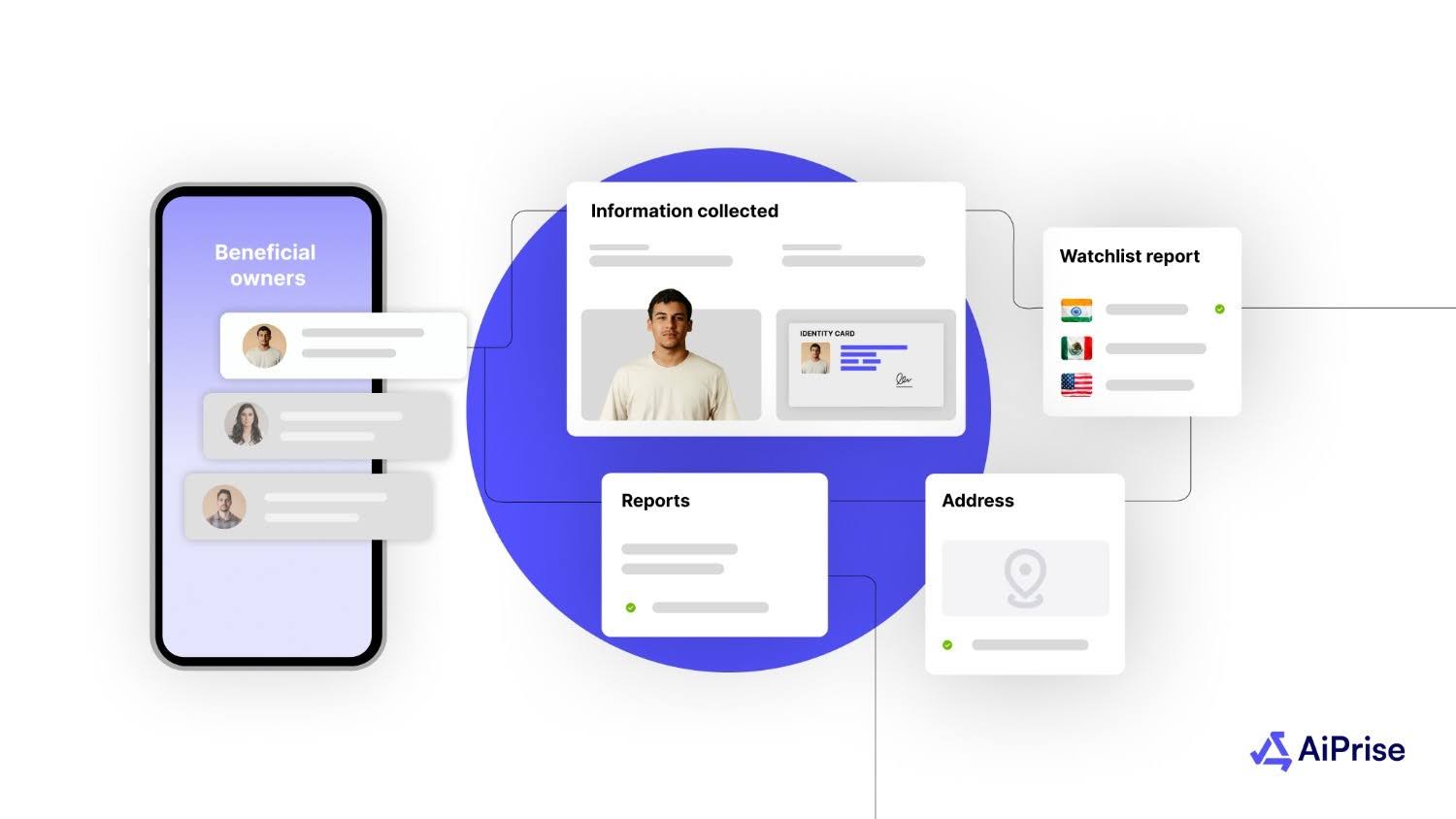

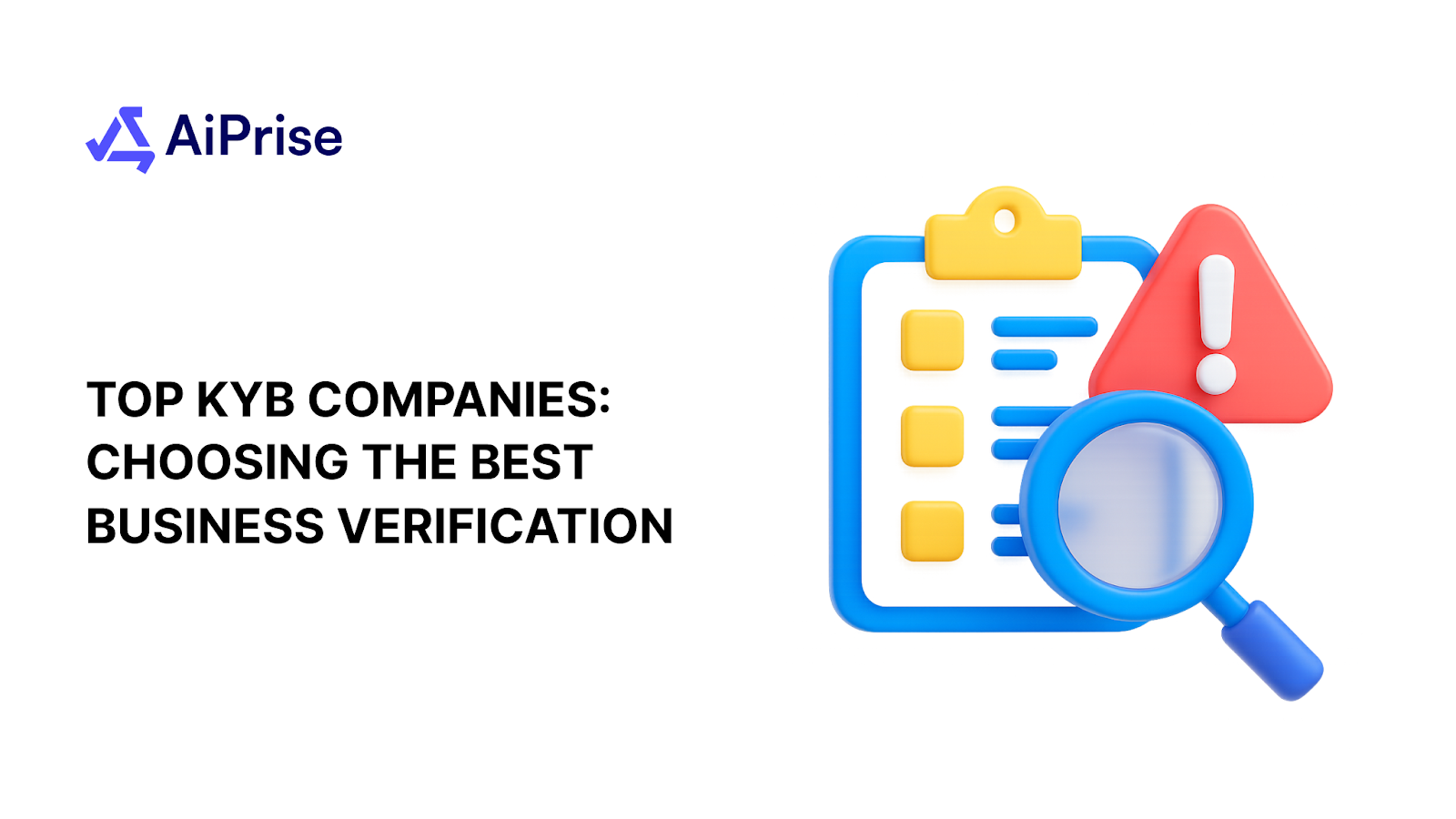
%20Can%20Improve%20Your%20Compliance%20Strategy.png)
